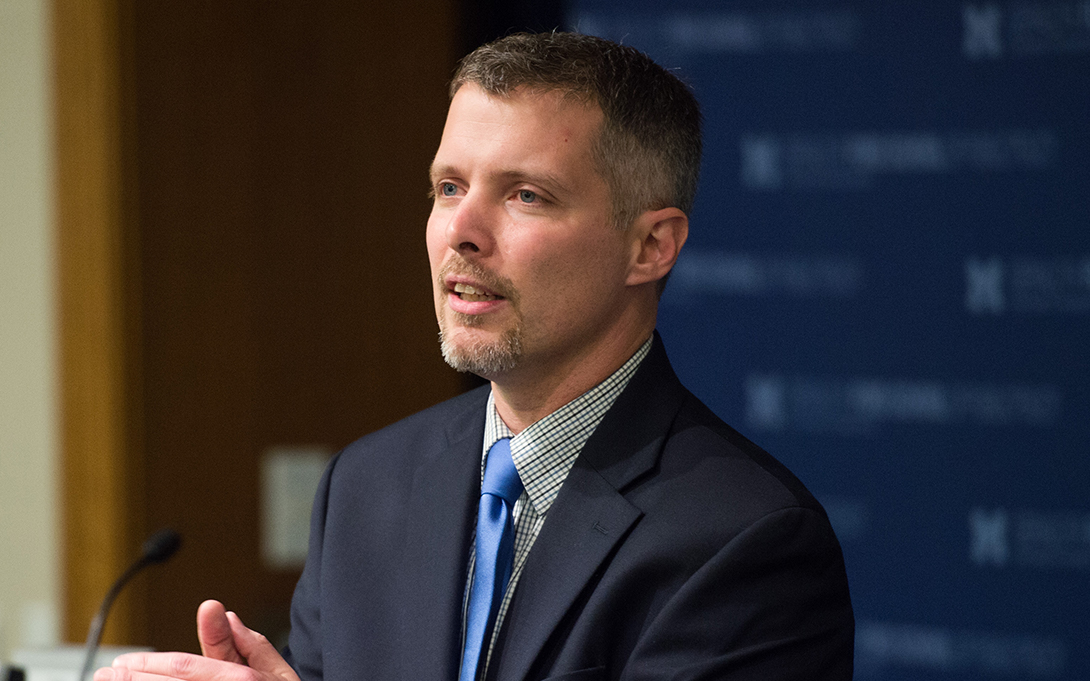
Poverty Solutions has announced its grant awards for 2018 and two Ford School professors, Shobita Parthasarathy and Kristin S. Seefeldt, have been chosen as Faculty Grant Award recipients.
Parthasarathy’s project, “The Politics of Technology for the Poor: Between India and the World,” investigates the impact of technology on poverty alleviation. “This project investigates the politics that shape development of these technologies, both at the international level and within India,” writes Parthasarathy. “Understanding these politics is a key step towards transparency in policy making, and towards ensuring that technologies are chosen and implemented in ways that poor citizens want and need.”
Seefeldt’s project, “Helping Across Generations: An Exploratory Study of Blue Collar Workers’ Retirement Well-Being,” explores the impacts of intergenerational financial assistance, specifically pertaining to older adults from working-class backgrounds providing monetary aid to their adult children and extended families. “Study findings may suggest needed reforms to the social safety net and to the ways we think about retirement so that poverty is both alleviated and prevented,” Seefeldt notes. “These include reforms that would make it easier for families to access public benefits, putting less stress on the private safety net as well as reforms that do not penalize economically vulnerable retirees for providing assistance.”
Poverty Solutions announces these new grant awards after a successful first year focusing on “collaborative, action-based research partnerships with communities and policymakers.” In partnership with the Detroit Urban Research Center, Poverty Solutions also “kickstarted a number of projects that address poverty in concrete, tangible ways based on insights from academic disciplines from healthcare to urban planning.”
Luke Shaefer, director of Poverty Solutions, sees these new grantees as the byproduct of the program’s growth in 2017. “These new projects build on the momentum Poverty Solutions has gained in its first year,” says Shaefer. “We aim to push the boundaries of this action-based research and continue to apply our findings in real-world, scalable ways.”
-- By Larry Sanders (MPP ‘18)
Poverty Solutions leverages the University of Michigan's intellectual assets and academic scope to inform and test innovative solutions for the prevention and alleviation of poverty. Poverty Solutions drives change by focusing on collaborative, action-based research partnerships with communities, policymakers, and stakeholders.
